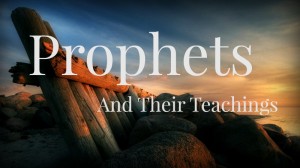This is the first to a two-part series on anger. In this first part we will take a look at human anger, where it comes from, how it affects us, and what the Lord has to say about us and our anger issues. The kind of anger referred to in these articles is manipulative anger.
 In the second part, we will deal with the Lord’s anger, what it is, and how it is the same or different from what we experience. I quote heavily from multiple talks and articles, so a good share of these two articles is the combined work of a professional counselor, members of the Seventy, and apostles and prophets.
In the second part, we will deal with the Lord’s anger, what it is, and how it is the same or different from what we experience. I quote heavily from multiple talks and articles, so a good share of these two articles is the combined work of a professional counselor, members of the Seventy, and apostles and prophets.
A Look at Human Anger
In 3 Nephi 11:29 we read,
… He that hath the spirit of contention is not of me, but is of the devil, who is the father of contention, and he stirreth up the hearts of men to contend with anger, one with another.
It is one thing to contend with another person. You can actually contend with someone, as in a rivalry, and be civil, but not if you contend with anger. President Spencer W. Kimball, in his book The Miracle of Forgiveness, tells us basically that anger is “a sin of thought” which, if not controlled, may lead to vicious and violent acts. Following is a definition of anger as defined by Burton C. Kelly in a 1980 Ensign article. This excerpt from his article points out that anger is intimately connected with how we choose to use our agency.
We make ourselves angry. What others say and do is usually a part of the equation, but anger cannot arise without our contribution. … As long as we decide our own emotions, we can change and control them. If other people or events were, in fact, responsible for what we feel, we would not have the freedom nor ability to change—unless we could control those other people and events, which is usually impossible. And so we have the first principle defining anger: we are ultimately responsible for the anger we feel.
The primary function of anger is to control others. Some people have learned this art very well. They get what they want by becoming loud and angry. The target of such ire tends to do what the angry individual wants in order to placate him. Anger thus has the unrighteous goal of attempting to diminish the freedom of others.
The second characteristic of anger, then, is that anger against others is a result of sin, or unrighteous thinking” (Burton C. Kelly, “The Case Against Anger,” Ensign, February 1980).
He continues on to describe how anger is actually a sin of thought, because we experience certain things when we commit this sin. To commit this ‘thought sin’ we either selfishly want to force our will on someone else or we set ourselves up as judge of the other person and condemn them for not behaving in the manner we would choose for them to behave. Either way, it is an act of desiring to strip them of their agency for selfish reasons.
We have seen that anger against another can only result after we commit sin (think unrighteously), but there is something in the nature of anger itself and its consequences that is also sinful. Anger itself is a sin when sin is defined as anything that retards the growth or progress of an individual. This is the third characteristic of anger that we need to recognize.
 Modern prophets have also warned against anger: “Never suffer anger to arise in your bosom; for, if you do, you may be overcome by evil” (Brigham Young, Journal of Discourses, 6:290); “The moment a man or woman becomes angry, they show a great weakness” (Wilford Woodruff, Journal of Discourses 4:98); “Anger that leads a man … to condemn his brother is crime” (David O. McKay, Pathways to Happiness, comp. Lewellen R. McKay, Salt Lake City: Bookcraft, 1957, p. 321).
Modern prophets have also warned against anger: “Never suffer anger to arise in your bosom; for, if you do, you may be overcome by evil” (Brigham Young, Journal of Discourses, 6:290); “The moment a man or woman becomes angry, they show a great weakness” (Wilford Woodruff, Journal of Discourses 4:98); “Anger that leads a man … to condemn his brother is crime” (David O. McKay, Pathways to Happiness, comp. Lewellen R. McKay, Salt Lake City: Bookcraft, 1957, p. 321).
At this point we should look at our definition of anger. I am using it in the sense that it is an emotion that results from judging others unrighteously, wanting to control others, or selfishly wanting our own ends met.
I once had a counselor tell me that one does not lose their temper; they use their temper to get what they want. This is what Brother Burton is saying. Anger is an agency-violating sin because we cannot experience anger without judgment or selfish thoughts and desires. Anger is the overt expression of pride, which is the opposite of charity.
Leaders Counsel Against Anger
In the April 1998 General Conference, Elder Lynn G. Robbins gave a talk entitled “Agency and Anger.” In it he said:
“In the Joseph Smith Translation of Ephesians 4:26, Paul asks the question, ‘Can ye be angry, and not sin?’ The Lord is very clear on this issue: ‘He that hath the spirit of contention is not of me, but is of the devil, who is the father of contention, and he stirreth up the hearts of men to contend with anger, one with another.
‘Behold, this is not my doctrine, to stir up the hearts of men with anger, one against another; but this is my doctrine, that such things should be done away’ (3 Ne. 11:29–30).”
Elder Robbins continues with this final paragraph:
“Nor can becoming angry be justified. In Matthew 5, verse 22, the Lord says: ‘But I say unto you, That whosoever is angry with his brother without a cause shall be in danger of the judgment’ (emphasis added). How interesting that the phrase ‘without a cause’ is not found in the inspired Joseph Smith Translation (see Matt. 5:24), nor in the 3 Nephi 12:22 version. When the Lord eliminates the phrase ‘without a cause,’ He leaves us without an excuse. ‘But this is my doctrine, that such things should be done away’ (3 Ne. 11:30). We can ‘do away’ with anger, for He has so taught and commanded us.”
Brother Elray L. Christiansen, in the April, 1971 General Conference gave a talk called “Be Slow to Anger.” This is an excerpt from his talk on the importance of learning to control the emotions that cause anger.
“Even in our families, situations may arise that could cause irritations. It is then that parents must be calm and exemplary. The man with an uncontrolled temper is like an undisciplined child—he expresses his emotions explosively or by sulking, and disregards the feelings of those about him. In the home, anger should be controlled and love should abound. When, in his most impressionable years, a child experiences ugly situations that result from uncontrolled tempers, when he hears unkind words exchanged between his father and mother, and when he sees contention crowd out an atmosphere of kindness and mutual respect—when these conditions make a child’s environment, what chance has he to become refined and noble? The minds of children are like the sensitive plates of a photographer; they record every incident, good and bad. Our children may forget what is said, but they never forget that which they are made to feel. . . .
But to lose our temper, to explode, to become ugly, punitive, and hateful when faced with frustrations is inexcusable!
Why is it inexcusable to explode with anger and become vindictive? Simply because the power has been given us to control and to overcome such tendencies. If not curbed, such tendencies soon lose for us the respect and love of others.”

If you’d like to read more of Kelly’s articles, click here.
From these Brethren, we learn that anger is a passion that needs to be controlled. It is not approved by the Lord, and those who do not conquer their anger stand condemned by God. Anger almost always translates into a desire to usurp someone else’s agency, and is fueled by pride or selfishness.
Interestingly enough, I have found that in the times that I felt anger with my children or with others, I was generally surprised by an unexpected event. I felt trapped and powerless. It was at these times I felt the most anger. But if I knew something was going to happen, whether it was a choice that one of my children was going to make or if it was a personal event in my own life, anger was not really an issue. There is something about being able to see an event for what it is, and not experiencing that trapped feeling, that enables one to handle things more calmly and with more love.
What tools have you learned that enabled you to get past the hurt and anger and feel love in a stressful situation? Do you think seeing an event or decision in advance really helps us avoid anger?
References Used in Parts 1 and 2
“Love and Law” by Dallin H. Oaks, October 2009
“The Grandeur of God” by Jeffrey R. Holland, October 2003
“Agency and Anger” by Lynn G. Robbins, April 1998
Strong’s Expanded Exhaustive Concordance of the Bible (Red Letter Edition) 2010 pp. 24-25
Hebrew #639 ‘aph, af: the nose or nostril; hence, the face; wrath, anger; 4b…quick to anger might literally mean “short of face/nostrils” constitute an idiom meaning longsuffering or slow to anger. This meaning is applied to God as a figure of speech (anthropopathism)whereby He is attributed human emotions. Since God is infinite, eternal, and unchangeable and since anger is an emotion representing a change in one’s reaction, God does not really become angry. He only appears to do so in the eyes of men.
“Be Slow to Anger” by Elray L. Christiansen, April 1971
“The Case Against Anger” by Burton C. Kelly (of the Counseling Center faculty and professor of educational psychology at Brigham Young University), Ensign, February 1980
Kelly Merrill is semi retired and writes for https://gospelstudy.us. He lives with his wife in Idaho. His strength is being able to take difficult to understand subjects and break them down into understandable parts. He delights in writing about the gospel of Christ. Writing about the gospel is his personal missionary work to the members of the Church and to those of other faiths who are wanting to know more about Christ’s gospel and His Church.







Thanks for the enlightenment on anger. There were things that I did understand about the emotion of anger before.